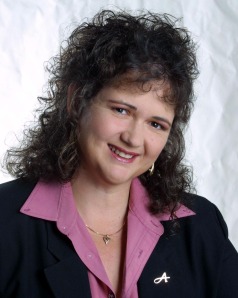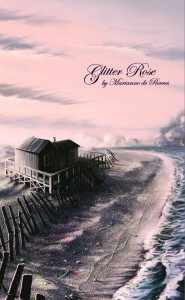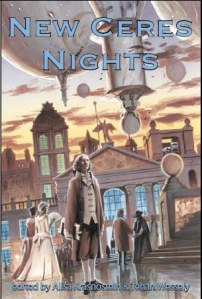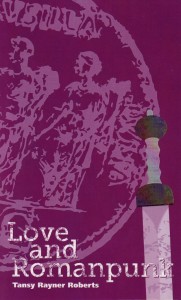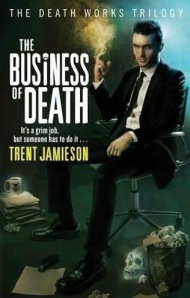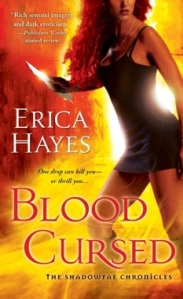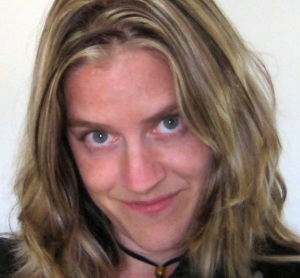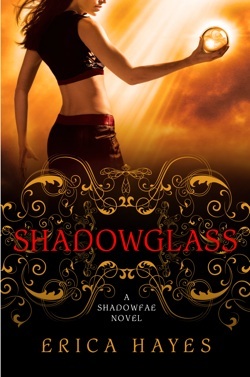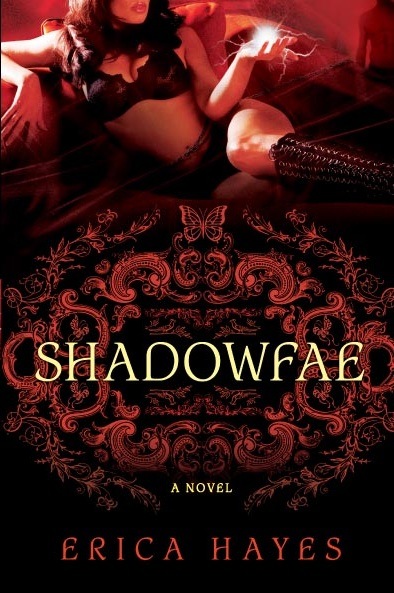I have been running a series of interviews with female fantasy writers to redress a perception I came across – that fantasy was a bit of a boy’s club. It really isn’t like that here in Australia. We have many wonderful fantasy writers who just happen to be female.
Today I’m interviewing dark fantasy author, Alan Baxter. I thought I’d ask him the same questions I’ve asked the female writers about fantasy writing and gender, to get his perspective as a male writer.
Look out for the give-away at the end of the post.
Q: I see you live on the South Coast of NSW. Does that mean south of Sydney? This area there, in fact the whole coast, is very beautiful. Do you find that, as a creative person, you’re influenced by your surroundings?
Yes, south of Sydney by about an hour and a half. It’s dairy country, wide open, rolling hills. We’re in a valley with the escarpment at our backs and a five minute drive to the beach. Best of all worlds and absolutely beautiful.
I am very much influenced by my surroundings, but I still tend to write a lot of urban-based stuff. The city is an incredible muse for me, a living entity with everything that goes along with that. But living in the country gives me the headspace and peace conducive to writing. I lived in the city for years and loved it, but I’m a country boy at heart. Even if the city does still inform a lot of my work.
Q: You write Dark Fantasy books , what used to be called horror. RealmShift and MageSign look like they follow the one character. Is this an ongoing series like Jim Butcher and Simon R Green’s work?
 I question the distinction you made there. I write horror too, but dark fantasy and horror are different things. A lot of what’s generally referred to as horror is better classified as dark fantasy in my mind. Other examples would be a lot of Stephen King’s work (Dark Tower, for example), a lot of Clive Barker’s stuff (like Weaveworld). While these people are often thought of as horror writers, and they are, they also work in dark fantasy. There’s a difference between two for me. My publisher actually refers to my novels as dark fantasy thrillers, which is the best description in my opinion.
I question the distinction you made there. I write horror too, but dark fantasy and horror are different things. A lot of what’s generally referred to as horror is better classified as dark fantasy in my mind. Other examples would be a lot of Stephen King’s work (Dark Tower, for example), a lot of Clive Barker’s stuff (like Weaveworld). While these people are often thought of as horror writers, and they are, they also work in dark fantasy. There’s a difference between two for me. My publisher actually refers to my novels as dark fantasy thrillers, which is the best description in my opinion.
RealmShift and MageSign follow the main character of Isiah and are a duology. While each can be read alone, MageSign follows directly from the events in RealmShift. But I don’t know if there will ever be more Isiah books. A couple of Isiah short stories have been published here and there, but I’d need a really solid idea to write another Isiah novel. Never say never, but it’s not happening any time soon.
In the meantime, I’m working on a new series, a trilogy in the same world as the Isiah books, with entirely new characters. But Isiah does make a brief cameo in the first one.
Q: There’s a particularly British sensibility about Simon R Green’s Nightside books. You are British-Australian. Would you say your book reflected this hybrid sensibility?
 Definitely. I’m pretty well travelled and will get away to walk the Earth at the drop of a hat. It’s only money that prevents me from living a life constantly on the road. With RealmShift I was very deliberate about not identifying the opening city. The book moves on and the characters go to places like Guatemala, but the initial part of the book is in “the city”. It could be Sydney, London, New York – I wanted it to be everyone’s city.
Definitely. I’m pretty well travelled and will get away to walk the Earth at the drop of a hat. It’s only money that prevents me from living a life constantly on the road. With RealmShift I was very deliberate about not identifying the opening city. The book moves on and the characters go to places like Guatemala, but the initial part of the book is in “the city”. It could be Sydney, London, New York – I wanted it to be everyone’s city.
MageSign is different. It’s very much an international book, but Sydney and the NSW outback play a major part and the whole book heads to those places. But it starts in Britain and I draw a lot on my experience of different countries to flesh out my stories as much as possible. I’m very keen on a sense of place being prevalent in my work, whether that place is actually identifiable or not.
 Q: As well as books you are also a short story writer. I notice you have a story in Keith Stevenson’s new anthology Anywhere but Earth. I take it this is a science fiction story. Are you an SF fan from way back? Did you grow up in a house filled with books or did you discover Asimov (for instance) in a second-hand book shop?
Q: As well as books you are also a short story writer. I notice you have a story in Keith Stevenson’s new anthology Anywhere but Earth. I take it this is a science fiction story. Are you an SF fan from way back? Did you grow up in a house filled with books or did you discover Asimov (for instance) in a second-hand book shop?
I’ve been a fan of everything fantasy and science fiction since I was a kid. But I didn’t grow up with it – my parents were keen readers, but definitely not genre fiction. They always encouraged reading, pushed me to improve, and I fell in love with it instantly, but I found genre fiction myself somehow. From a very young age I devoured things like Lord Of The Rings and Earthsea. I graduated to sci fi and horror and never looked back.
Q: You have also written a serialised story about bounty hunter called Ghost, Ghost of the Black: A ‘Verse full of Scum’. What prompted you to follow in the footsteps of the greats like Charles Dickens and write a serial? Was it hard to keep up the pace?
I wanted to generate some more interest in my website and promote my other work, so I used the old marketing ploy: Give some stuff away and hope people come back to buy more. I really liked the idea of writing a serial and posting a new episode every week. Apart from the increased site traffic, it appealed to my love of the old series like Flash Gordon and Rocketman that I loved as a kid.
But I cheated. Ghost Of The Black is a roughly 30,000 word novella, which I serialised, but I wrote it all in advance. So keeping the pace wasn’t an issue. I had the whole thing ready to go and started posting a new ep every week throughout 2008. I would tweak and edit a bit each week, but it was largely a done deal. I’m not sure I’ll do it again though!
I’d like to write more stuff with Ghost and his exploits. Hopefully I’ll get around to that some day, but I won’t serialise it again. Maybe I’ll self-publish his further exploits as ebooks to accompany the existing ebook I released once the serial was finished.
 Q: I see you work as a martial arts instructor and personal trainer – you disprove the sedentary writer stereotype. Your martial art is Kung Fu. I’d studied each of these martial arts for five years: Tae Kwon Do, Aikido and Iaido, the art of the Samurai sword. Plus I dabbled in Ju Jitsu. What drew you to Kung Fu?
Q: I see you work as a martial arts instructor and personal trainer – you disprove the sedentary writer stereotype. Your martial art is Kung Fu. I’d studied each of these martial arts for five years: Tae Kwon Do, Aikido and Iaido, the art of the Samurai sword. Plus I dabbled in Ju Jitsu. What drew you to Kung Fu?
Monkey and Hong Kong Phooey. If you don’t know those things, you must check them out. I started in Judo as a kid of about 11 or so. Then I tried Karate when my Judo teacher moved away, but I didn’t like it. What I did like was Monkey fighting off demons with his magic staff, and Hong Kong Phooey with his Hong Kong Book Of Kung Fu. So I went out seeking a Kung Fu school and found my physical and spiritual home. I’ve done it ever since.
I’ve studied a variety of Kung Fu styles to one extent or another, but for the last 15 years or so I’ve studied and taught Choy Lee Fut Kung Fu.
Q. You recently presented at the Emerging Writers Festival in Brisbane, a crowdfunded event. How did that come about and what was your part in it?
The EWF is a great initiative putting on events all over the country for writers. It’s obstensibly for emerging writers, but it’s really of great value to all writers. The Brisbane event was all about digital writing – writing for online markets, promoting yourself and your work online and all the opportunities and pitfalls around those activities. I was invited up to present as part of the panel on using the online environment to promote your work, to get work and to work for you. I blogged about it quite extensively here.
Q: I was prompted to start this series of interviews because there seems to be a perception in the US and the UK that fantasy is a bit of a boy’s club. Do you think there’s a difference in the way males and females write fantasy?
 Yes and no. Some people write in a very gender specific style, and I know I’ll cop some shit for saying that, but it’s true. Some female writers, for example, have a style that’s extremely feminine and targeted mainly at female writers. Some males have the same things going on for the men. Of course, that doesn’t mean the other gender can’t read and enjoy those things, but there is a definite difference.
Yes and no. Some people write in a very gender specific style, and I know I’ll cop some shit for saying that, but it’s true. Some female writers, for example, have a style that’s extremely feminine and targeted mainly at female writers. Some males have the same things going on for the men. Of course, that doesn’t mean the other gender can’t read and enjoy those things, but there is a definite difference.
But other writers are completely gender-neutral in their style, to my mind. Whether they’re male or female is irrelevant to their writing and their readers and they’re just telling good stories. The vast majority of writers fall into this category, I think.
Q: Following on from that, does the gender of the writer change your expectations when you pick up their book?
Not in the least. If the book appeals – the blurb grabbed me, the cover interests me, friends have recommended it or whatever – then gender is irrelevant. And if it’s a style of book I don’t enjoy it’s rarely, if ever, a gender-based decision. Some things work for people and some don’t – no writer can appeal to everyone all the time.
Some of my favourite writers working in genre fiction at the moment are female, in fact, and I agree with you that whatever the perception globally about SF being a boys’ club, that’s definitely not the case here in Australia. We have a plethora of talented female writers. A look at recent publications in SF in Australia would probably lean heavily to a female predominance, in fact.
Q: And here’s the fun question. If you could book a trip on a time machine, where and when would you go, and why?
This is a tough one. So many possibilities. The answer that sprang immediately to mind is that I would go far into the future where time machines are ubiquitous, buy one and carry on exploring. But that’s like wishing for more wishes.
If I had just one time jump, much as it would be fantastic to go back and see ancient civilizations and all that, I would have to go forward. Jump a thousand years into the future, maybe, just to see what humanity has done with itself.
The dark fiction writer in me sees my arrival in a barren, wasted landscape, destroyed by the folly of man, where I would instantly die, poisoned by the toxic atmosphere of a world we’ve destroyed. But the optimist in me sees vast cities, interstellar craft exploring the galaxy and wonders of science that would seem like magic to us now. That’s something I would love to see. Still, I suppose I can just wait instead.
Giveaway Question:
A copy of RealmShift to whoever can best capture the difference between horror and dark fantasy in a single sentence!
Catch up with Alan on Facebook
Catch up with Alan on Goodreads – http://www.goodreads.com/author/show/917335.Alan_Baxter
Catch up with Alan on Google+.
Follow Alan on Twitter. @AlanBaxter








